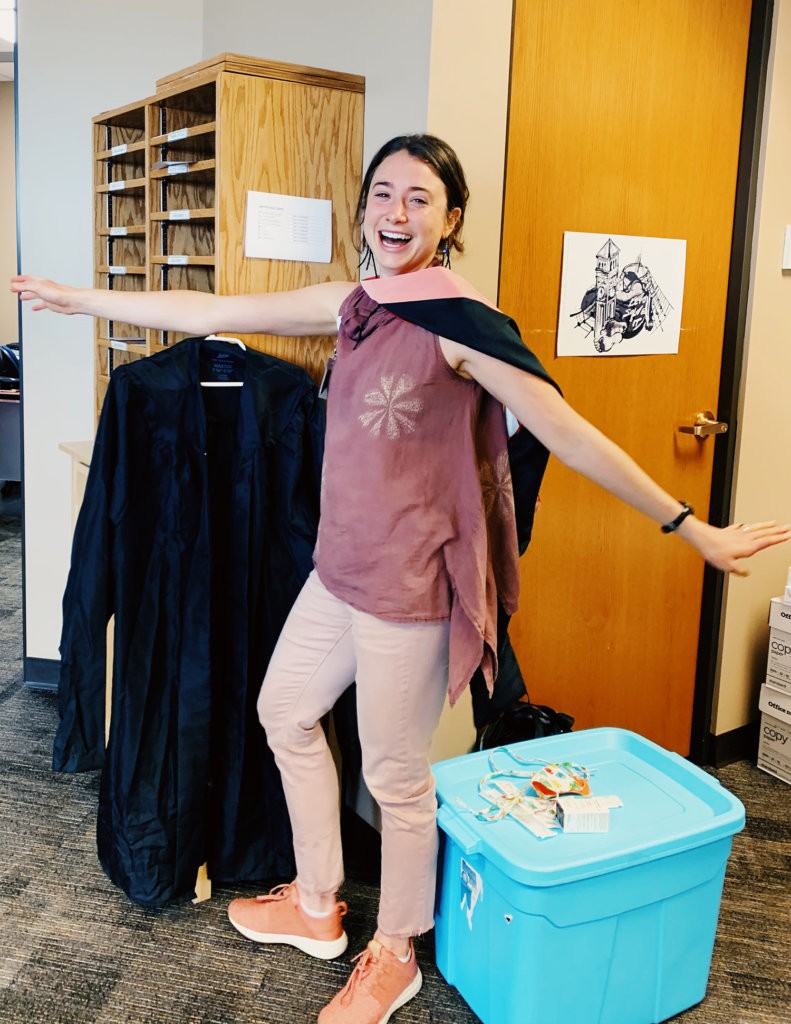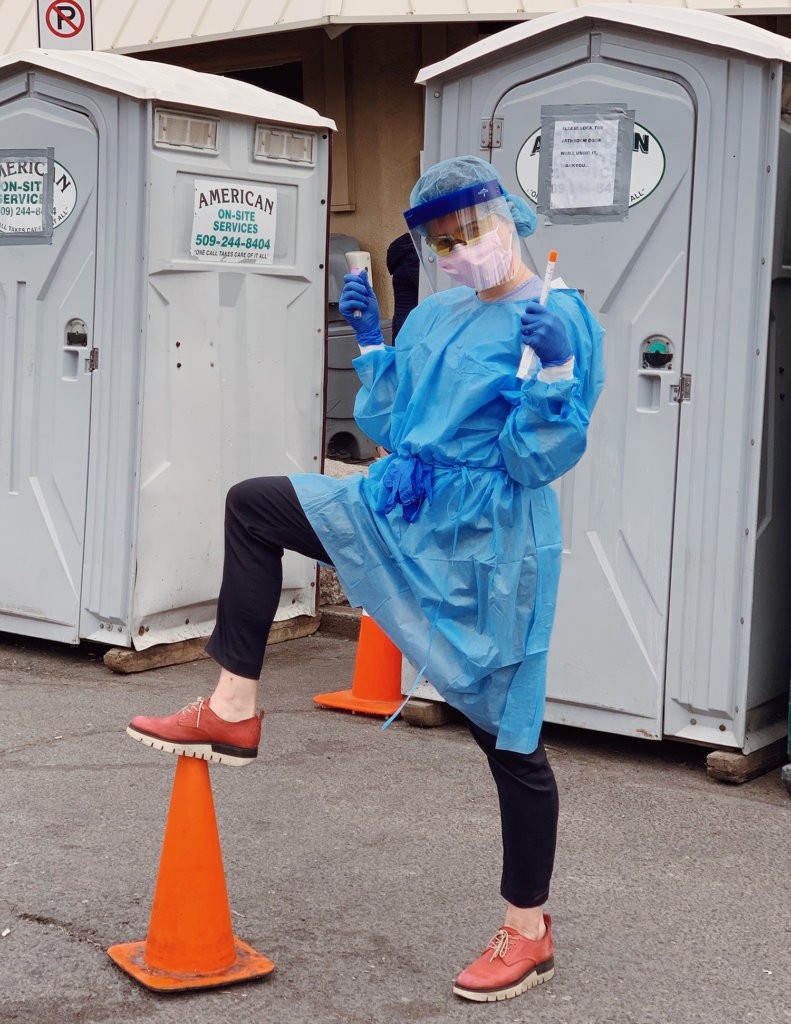Kira Lewis had been so busy saving lives that she barely registered the fact that Eastern’s semester graduation ceremony, scheduled for last Friday, had been suspended due to COVID-19.
As a newly minted Master’s of Public Health program graduate from EWU, under more ordinary circumstances Lewis almost certainly would have been among those donning a cap and gown. But not this spring, not in the teeth of a worldwide pandemic.

“The last bit of school happened amid very long work weeks and the craziness of COVID,” says Lewis, who completed her MPH while working as a public health nurse at the Spokane Regional Health District. “Finishing this semester was rough. Many of my coworkers knew that I was aching for the end, so they threw me a little surprise graduation event at work.”
Seldom has a party been more deserved. Lewis is among a handful of public health nurses who work directly with some of Spokane County’s most vulnerable people—the poor, the homeless, the drug and alcohol dependent, the beaten-down masses on society’s margins.
Keeping these populations healthy is never easy, but COVID ratcheted up the challenge. As the pandemic began its rampage across the region, there were real concerns that individuals in these groups—many of whom suffer from a range of chronic health conditions—would be devastated by the illness. That this hasn’t happened already is a testament to the dedication and courage of professionals such as Lewis.
Before the pandemic, Lewis divided her time between tuberculosis and Hepatitis A. For TB she says, this meant daily home visits to manage care for people with active cases. The work with Hep A, she says typically meant hoisting up a vaccination-gear-laden backpack and venturing out to homeless shelters, needle exchanges, jails. It was this work that reinforced her motivation to seek out an advanced degree from Eastern, one that she hopes will help her inspire change.
“At the health district, one of our values is health equity” Lewis says. “I am deeply committed to this value, and effort towards this goal requires transformational change. So, we are working hard and doing our best to make progress, but I am eager for systemic change.”
During the pandemic, Lewis’s efforts have been focused on the homeless, where she is part of a team helping to ensure that opportunities for transmission of the virus are minimized through social distancing, testing and treatment. The hours are long and the work is difficult. But Lewis says she prepared.

“I have been, and will continue to be around people with COVID-19,” she says. “But I use PPE and follow the established protocols and process that keep me and the people I’m helping safe as possible. This is part of being a nurse! Plus, I am learning how to not touch my face all the time and not lick my finger to turn pages!”
Lewis, who did her undergraduate work at Seattle Pacific University, adds that her experiences—and not just recent ones—have been useful as a master’s student at Eastern. “My work experience as a psych nurse, a school nurse and as a public-health nurse provided me with a framework for understanding our health system and public health issues. I was often able to think about our topics of discussion in terms of real-life situations I had experienced or witnessed in my work, and I think that added meaning to what I was learning at Eastern.”
Also critical to her success as a student, she says, were mentors such as Pam Kohlmeier, a physician and lecturer with EWU’s Master’s of Public Health program, and David Line, an assistant professor who serves as the program’s director.
“Pam Kohlmeier has been an incredible guide. She is not only an excellent instructor, she is an honest, thoughtful, and deeply caring mentor,” she says. “Dave Line started teaching at EWU during my second year and we were so lucky to have him. He has a remarkable skill of communicating the most important gems of his vast knowledge in a way that illuminates complex issue. Countless times, I would frantically jot down a Dave quote so I could lock it into my brain and share it.”
David Line returns the compliment. In class, Line says, Lewis drove discussions and challenged faculty members to reach higher. She wasn’t just content to learn from others. She sought, and succeeded, in making contributions of her own.
“While a student,” Line says, “Kira conducted research on how to improve services to the Marshallese community in Spokane. She then presented this research at a Washington State Public Health Association conference in Wenatchee as well as in the EWU-MPH Grand Rounds series in October.”
Now that’s Lewis has earned her degree, she’s ready to add COVID-19 to the “I can learn from this” category.
“I really do think differently about public health and preparedness after being a part of this,” she says. “It’s amazing how so many people and groups have come together to launch an incredible response. What I have learned is that we do have the collective power to make our lofty aspirations happen. I’m not sure how this will impact my professional trajectory, but I am certain it will!”

